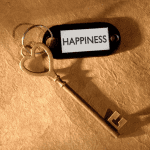Avinu Malkeinu
Written by Rabbi Stephanie Shore
9.1.22
Avinu Malkeinu is the liturgical highlight of the Days of Awe. We recite it during the Erev Rosh Hashanah service and then repeat it 4 more times before the blowing of the shofar at Neliah, the concluding service on Yom Kippur. For many it would not be Rosh Hashanah or Yom Kippur if this melody was not heard.
The author of the prayer is said to be Rabbi Akiva who lived in the second century C.E. He composed the prayer because of a drought and the supplication brought rain.
We all know the Avinu Malkeinu, here is the translation:
Our Father, Our King
Be gracious and answer our prayers
For we have little merit
Deal kindly and gently with us
And save our people
For we have little merit
כי אין בנו מעשים
Is an admittance of a non-deserving statement. We would expect something like this from our Christian neighbors who believe in Original Sin. Christians have developed an entire vocabulary around the idea of divine grace given, although not merited, by humankind. So, what place does it have in Jewish liturgy?
Jews, for centuries, have believed in God’s compassion. We recite the 13 attributes of God being compassionate and gracious, slow to anger, abounding in kindness and faithfulness, extending kindness to the thousandth generation, forgiving iniquity, transgression, and sin;
Akiva could have been writing in the literary style of his day by using an overstatement that no one would mistake for literal accuracy, but he could have meant what he said which would cause us to understand that at one point in our history Christianity and Judaism were very close in their respective doctrines of human virtue.
Later Jewish thinkers however modified this extreme position. To this day, our liturgy here proclaims that in the end we rely on God’s grace, for ein banu maasim, we have no good deeds.
When editing the newest Reform prayerbook however, the extreme view of Rabbi Akiva did not go unnoticed. Instead of “Be gracious to us and answer us, for we have little merit,” we find, “Be gracious and answer us when are deeds are wanting.”
Rabbi Akiva lived in the 2nd century, that is 2000 year ago. Learning that Akiva felt exhausted from the lack of goodness in his fellows gave me hope. Many of us find ourselves living during a period of time when a lack of compassion, understanding and kindness is rampant in the world. We may ask ourselves periodically, “How much more can the world take?” or “How disastrous are things going to get”, “Is the world falling apart?
It is evidenced by Rabbi Akiva’s supplication that a lack of goodness in the world is not a new phenomenon. Troubles and troubling people have been around throughout history. Many of us might stop there and say, “Well, what’s the use anyway?” We may wonder, “What difference can I make?” or “Do I really need to take an accounting of my transgressions? Yes, I might have done some less then stellar things but what will it do for me to admit them?” “It seems too hard and I don’t know how to do it anyway.“
Returning to G!d is a main theme during our holidays. We want to be inscribed into the Book of Life for the coming year. And quite frankly the ONLY way our world will change is for every human being to become accountable and begin the process of t’shuvah, returning to the Godly nature we ALL have inside.
Our liturgy clearly spells out the necessary actions we must take to make it into the Book of Life. Repentance, Prayer and acts of good deeds lessen the evil decree.
In his book, “This is Real and You Are Completely Unprepared, the Days of Awe as a Journey of Transformation,” Rabbi Alan Lew reminds us that the Talmud claims that these activities will actually cause the decree to be torn up (ma’akirin). That which was decreed to happen will not in fact happen.
The liturgy, however, makes a very different claim, namely that prayer, racts of good deeds and Teshuvah will not change what happens to us: rather they will change us! And isn’t that the point?
Yes there is bad in the world, yes there are bad people and sometimes we are the people who are not acting in the best interest of Tikun Olam but our G!d is gracious and answer us even when are deeds are wanting.”
This High Holiday season let us be open to the change within ourselves so we can become the people we are commanded to be a kingdom of priests and a holy nation.



